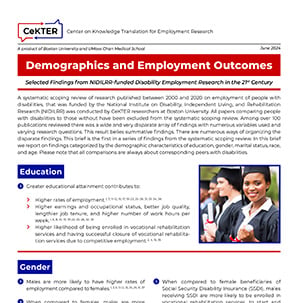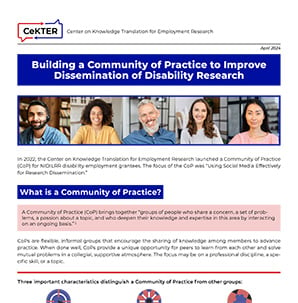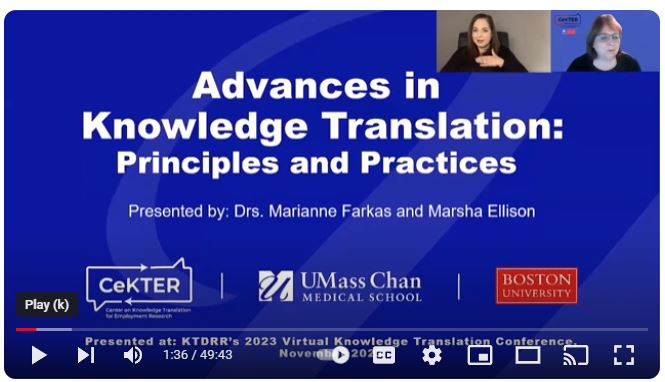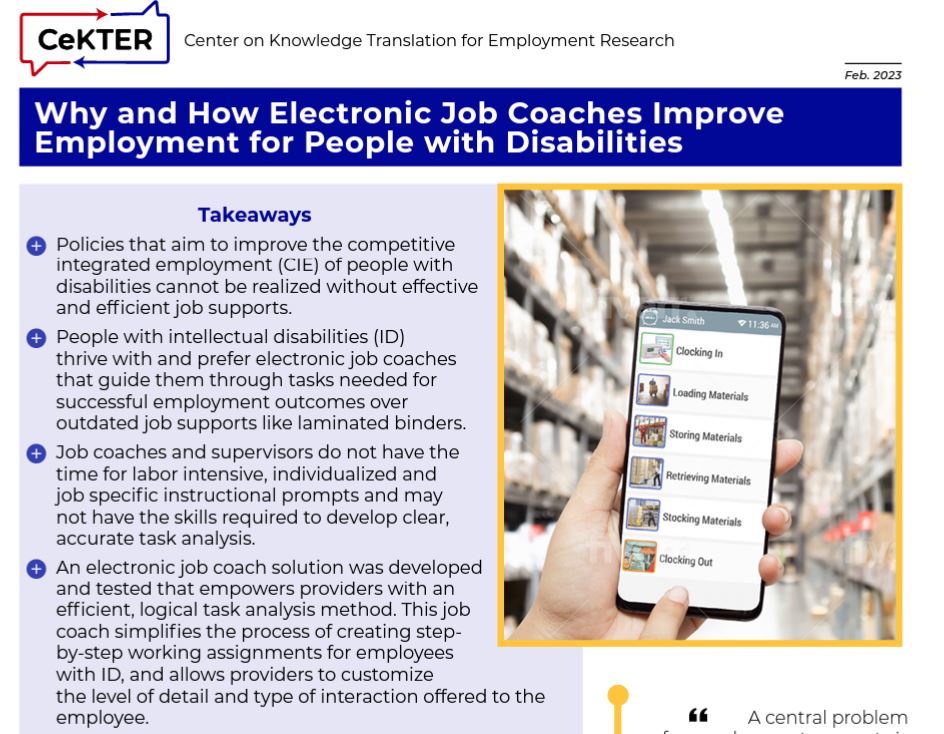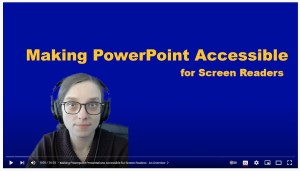CeKTER Created Products
-
Tuesday, November 05, 2024
![thumbnail of brief]()
Employment Outcomes among People with Disabilities: Vocational Services-Related Determinants
By: Zlatka Russinova, PhD, Philippe Bloch, M.Ed and Anneliese de Wet, PhD
-
Tuesday, July 09, 2024
![Thumbnail of tipsheet]()
Demographics and Employment Outcomes: Selected Findings from NIDILRR-funded Disability Employment Research in the 21st Century
By: Zlatka Russinova, PhD and Philippe Bloch, PhD
-
Monday, April 22, 2024
![Thumbnail of the written brief]()
-
Tuesday, December 12, 2023
![blue presentation screen with text]()
-
Thursday, November 02, 2023
![Webinar screenshot]()
-
Wednesday, February 15, 2023
![thumbnail of video]()
-
Wednesday, February 15, 2023
![thumbnail of brief]()
-
Wednesday, February 15, 2023
![thumbnail of webinar video]()
-
Wednesday, March 23, 2022
![""]()
Making MS PowerPoint Accessible for Screen Readers
By: Alexandra Murray
-
Tuesday, March 22, 2022
![Creating Welcoming Environments for Workers with Disabilities: Managing Cognitive Demand]()
Creating Welcoming Environments for Workers with Disabilities: Managing Cognitive Demand
By: Gretchen Snethen and UMass Chan CEKTER


